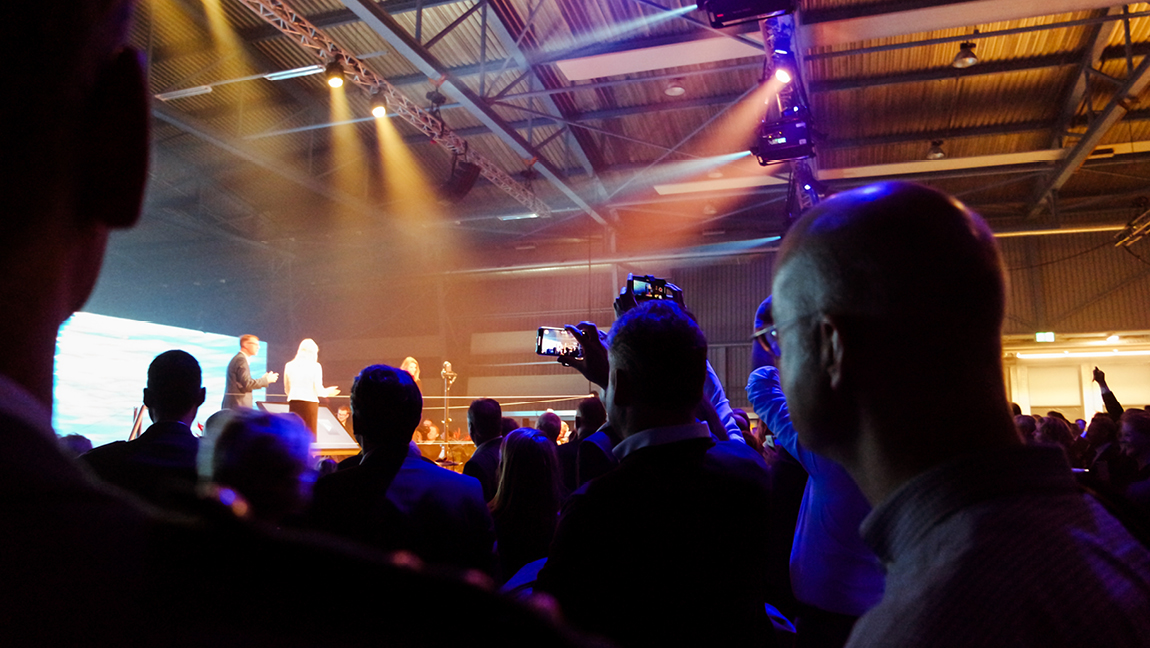Events That Resonate: 8 Tips for Creating Impactful B2B Events
Event Guides
Event Guides

In the bustling world of event management, success is measured not only by attendance numbers but by the lasting impact and resonance of the experiences we create. Whether it’s a corporate conference, product launch, or industry trade show, the key to memorable events lies in the ability to captivate, inspire, and engage attendees.
So, how can event planners ensure that their events leave a lasting impression?
Before diving into the logistics of event planning, take a step back and clearly define your objectives. What do you hope to achieve with this event? It might be:
Having a clear understanding of your goals will guide every aspect of the event planning process.
For example: If the objective of your event is to increase brand awareness, you might focus on securing high-profile speakers, leveraging social media promotion to reach a wider audience, and incorporating branding elements throughout the event space.
Understanding your audience is essential for creating an event that resonates. Conduct market research, analyse past attendee data, and gather insights to tailor your event to the preferences and interests of your target audience.
By knowing who you’re trying to reach, you can design experiences that speak directly to their needs and desires.
For example: For a technology conference targeting professionals in the IT industry, you might tailor the event agenda to include cutting-edge topics such as AI and cybersecurity, and provide networking opportunities specifically geared towards tech enthusiasts.

Content is king in the world of events. From keynote speeches and panel discussions to interactive workshops and experiential activations, every element of your event should offer value and engagement.
Work with industry experts, thought leaders, and creative minds to develop compelling content that educates, entertains, and inspires your audience.
For example: A marketing summit could feature engaging panel discussions with industry experts, hands-on workshops covering the latest trends and strategies, and interactive demonstrations of innovative marketing tools and technologies.
Engagement is the heartbeat of any successful event. Encourage active participation through interactive sessions, networking opportunities, and gamification elements. Create spaces that foster meaningful connections and dialogue, where attendees can share ideas, collaborate, and forge new relationships.
For example: In a networking event for entrepreneurs, you could organise icebreaker activities, speed networking sessions, and roundtable discussions on relevant topics to encourage attendees to interact and exchange ideas.
Details matter. Pay close attention to every aspect of the event experience, from venue selection and décor to catering and signage. Strive for excellence in every touchpoint, ensuring a seamless and memorable experience for attendees from start to finish.
For example: For a luxury product launch event, attention to detail might involve selecting a prestigious venue, designing elegant invitations, curating a gourmet menu, and ensuring seamless transportation and parking arrangements for guests.
In today’s digital age, technology is a powerful tool for enhancing event experiences. Utilise event management software, mobile apps, and virtual platforms to streamline logistics, facilitate communication, and deliver personalised experiences. Embrace innovation to create immersive, interactive, and tech-enabled events that wow your audience.
For example: An industry trade show could utilise event management software to facilitate online registration, mobile apps to provide real-time updates and interactive maps, and virtual reality experiences to showcase products and services in an immersive way.
Inject moments of surprise throughout your event to create memorable experiences that leave a lasting impression. Whether it’s a surprise guest speaker, a live performance, or a themed breakout session, these unexpected moments can elevate the event experience and spark excitement among attendees.
For example: At a corporate gala dinner, you might surprise attendees with a special performance by a local artist, interactive entertainment such as a photo booth or caricature artist, or a raffle drawing for exclusive prizes.
After the event is over, take the time to evaluate its success and gather feedback from attendees. Measure key metrics such as attendance rates, engagement levels, and ROI to assess the impact of your event. Additionally, solicit feedback from attendees through surveys, interviews, and social media channels to gain valuable insights and identify areas for improvement.
For example: Following a conference, you could track metrics such as attendance numbers, session ratings, and social media engagement to evaluate the event’s success. Additionally, sending out post-event surveys to attendees can provide valuable feedback on what worked well and areas for improvement.
Creating impactful event experiences requires careful planning, creativity, and a deep understanding of your audience. By defining clear objectives, crafting compelling content, and prioritising engagement, you can create events that resonate with attendees long after the lights have dimmed, and the crowds have dispersed.
